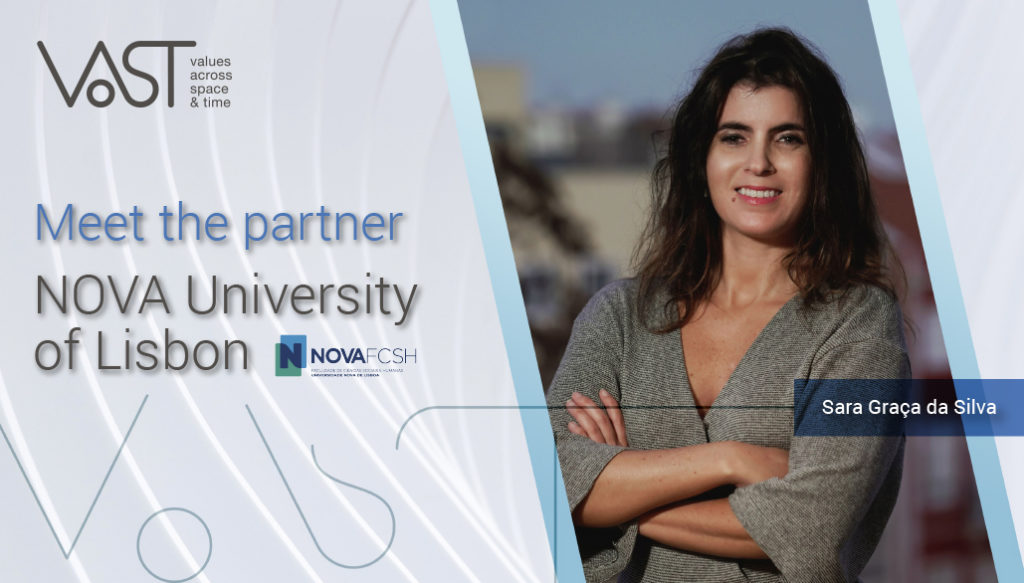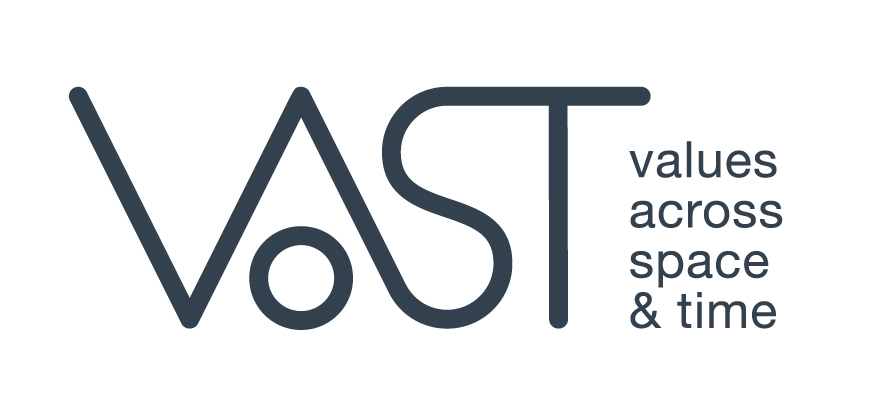Meet the Partner – NOVA University of Lisbon

NOVA University of Lisbon (NOVA) is one of the two public Universities located in Lisbon and it is the best ranked Portuguese university in QS Ranking 50 under 50 (41th). The university includes, besides the Rectorat, 1 School of Public Health, 3 Institutes and 5 Faculties, including NOVA School of Social Sciences and Humanities (NOVA FCSH) that participates in VAST project.
NOVA FCSH is the largest Portuguese Higher Education and Research institution in the fields of Social Sciences and Humanities, covering such areas as Communication and Language Sciences, Artistic and Literary Studies, Philosophy, History and Archaeology, Anthropology, Demography, Geography and Sociology, Political Studies and International Relations, and intersections between these disciplines.
NOVA FCSH develops cutting-edge research in different scientific areas in its 16 R&D Units, 14 of them are financed by the Portuguese Foundation for Science and Technology (FCT – Fundação para a Ciência e a Tecnologia). The ever-growing academic community at the NOVA FCSH counts over 2.000 national and international researchers integrated and/or associated to a Research Unit, as well as many other co-researchers, students and research grant holders. The Institute for the Study of Literature and Tradition (IELT) is the research unit that is active in the VAST project and is a multi-faceted centre that welcomes scholars from various fields, including literature, art, music, sociology, anthropology, medicine, biology, history of science, etc. Members share interests in the potential of literature for multidisciplinary reflections on cultural identities in constant re-evaluation.
More specifically, in the VAST project, NOVA FCSH participates as a partner with Dr Sara Graça da Silva as the lead person. NOVA’s team leads WP2: RESEARCH: Researching values across time and space, and especially Pilot 3: Values in European Folktales. This pilot seeks to analyse emotional and moral expressions conveyed in a number of selected tales by the Grimms brothers. Employing a cross-cultural perspective involving the participating countries in the project, it will look at how these values and moral judgments have been both received and adapted.
Folktales’ enduring appeal is intrinsically linked to the power of storytelling from time immemorial. Their motifs are timeless and fairly universal, comprising dichotomies such as good/evil, right/wrong, punishment/reward, moral/immoral etc. Narratives have many roles in our lives, reflecting broader cultural identities across time and place. Considering the heredity of memory, tales are a privileged means for the transmission of shared, core values that drive our behaviour.
Besides the theoretical research and analysis of textual evidence of the works regarding the values they convey from a multi-disciplinary perspective, there will also be a strong experimental approach to NOVA’s investigation. Through the use of biophysical methods (biosensors and eye tracking), we will explore emotional and moral reactions from participants to both familiar and unfamiliar stories using a variety of stimuli, including textual excerpts (both Grimms’ and adapted versions), illustrations and videos from films/plays.
Despite being often disregarded as simply fictional and even as a lesser form of literature, the extraordinary variability of tales makes them ideal case studies for cross-cultural comparisons on social values and dynamics, including cooperation, competition, or decision making. Albeit fictitious, folktales are important simulations of reality. The impact of such discernment goes beyond academia and can contribute to a greater sense of societal wellbeing.
